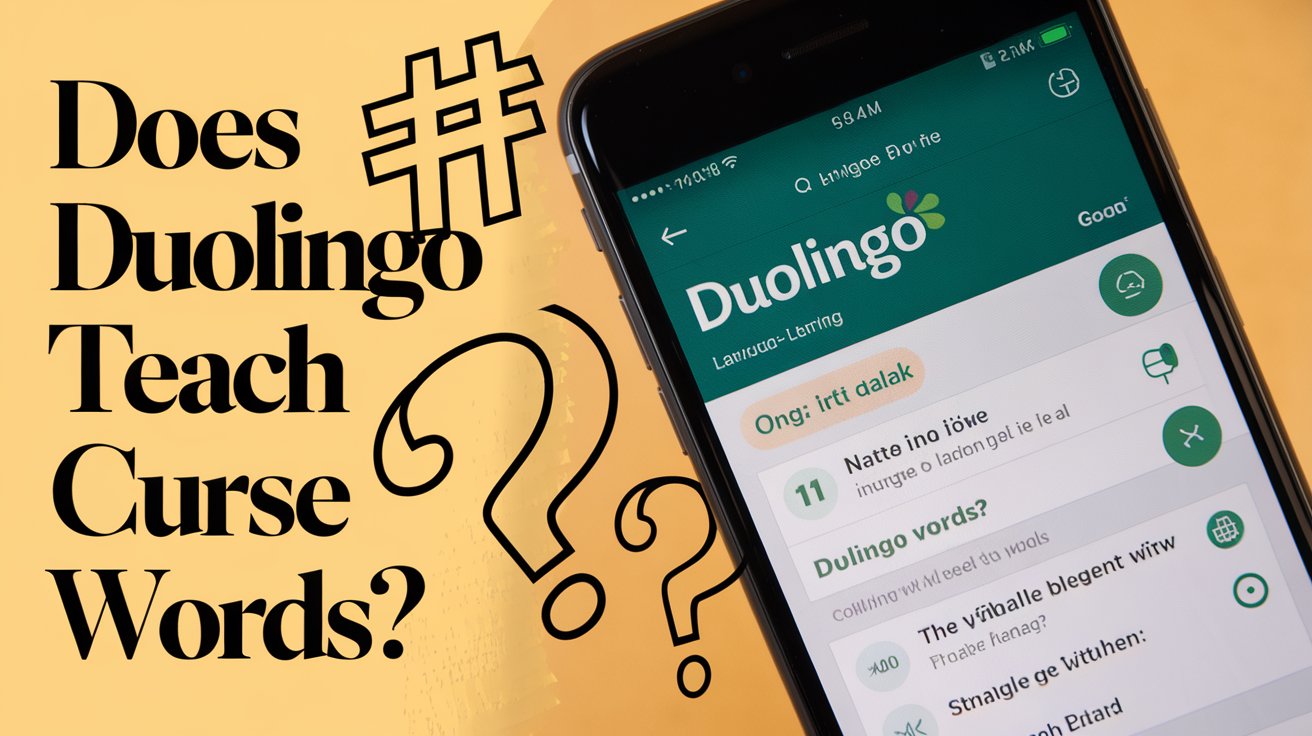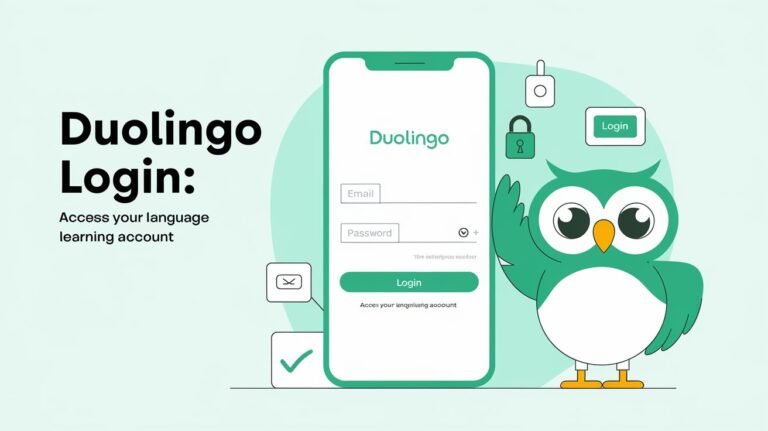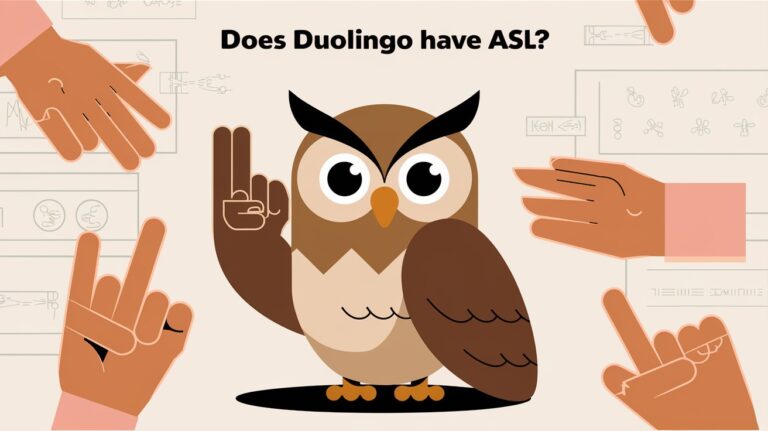Does Duolingo Teach Curse Words? A Complete Language Guide

Duolingo, a well-known app for learning languages, does not teach curse words or profanity. It focuses on teaching standard language that is safe for families. This includes basic vocabulary, grammar, and phrases for daily life, school, and work.
The app aims to make learning languages easy and welcoming for everyone. Duolingo sticks to teaching the basics of language. This way, it keeps the learning environment professional and friendly for all users.
Key Takeaways
- Duolingo avoids teaching curse words or explicit language in its official lessons and content.
- The app’s focus is on providing standard, everyday language skills for a broad range of learners.
- Duolingo’s content policy prioritizes maintaining a family-friendly and inclusive environment.
- While Duolingo incorporates some informal language, it does not include or teach profanity or slang.
- Moderation policies are in place to manage any user-generated content that may contain inappropriate language.
Content Policy and Profanity Guidelines on Duolingo
Duolingo is a top language learning app that keeps its content safe for all. It teaches everyday language, avoiding any words that might offend. This makes it safe for kids and students to use.
Family-Friendly Learning Environment
Duolingo is all about a safe learning space for everyone. It makes sure lessons are free from mature content on language learning apps or explicit vocabulary in language apps. This makes it a welcoming place for learners of all ages and backgrounds.
Standard Language Focus
Duolingo teaches the most common and accepted language. It focuses on standard language to help learners communicate well. This way, they can talk and write in many situations.
Moderation of User-Generated Content
Duolingo also checks user content, like comments and posts. It removes any explicit vocabulary in language apps or offensive words taught by duolingo. This keeps the learning space positive and helpful for everyone.
Duolingo’s strict rules help it offer a family-friendly learning environment. It lets users learn standard language without worrying about mature content on language learning apps or offensive words.
The Cultural Impact of Swear Words in Language Learning
Learning a new language is more than just memorizing words and rules. It’s about grasping cultural nuances and social norms. Profanity and swear words play a big role in this.
Using curse words correctly can teach you a lot about a language’s history and emotions. But, how people react to swear words changes a lot. This is why apps like Duolingo don’t teach them directly.
Swear words are becoming more common in TV and work. This shows they’re being accepted more in daily talk. Even research says swearing can help with pain and strength during sports.
But, swearing in a foreign language might not feel as strong as in your own. This is because of how our brains process these words. When translating texts with swear words, people adjust the offense level based on their native language.
The role of swear words in learning languages is complex. Knowing about profanity can offer cultural insights. But, it’s also important to be careful and consider the context when using curse words.
Does Duolingo Teach Curse Words: The Official Stance
Duolingo, a top language learning app, does not teach curse words or bad vocabulary. It aims to be a safe space for all users. Duolingo sticks to standard language, avoiding any words that might offend.
Alternative Methods for Learning Colloquial Language
If you want to learn slang or profanity, Duolingo suggests other ways. You can try apps focused on slang, YouTube channels, language forums, or websites. These resources are great for learning how people really talk.
Balancing Formal and Informal Vocabulary
Duolingo mainly teaches formal language but also includes some casual phrases. This mix helps learners talk well in different situations. It keeps them away from bad words while still teaching useful phrases.
Risk Management in Language Education
Duolingo knows teaching bad words can be risky. Using such language wrongly can cause problems in work or social life. So, Duolingo sticks to safe, standard language to help users communicate well everywhere.
Digital Language Apps and Profanity Teaching Methods
Digital language apps are different from old textbooks. They can handle slang and profanity more easily. Some apps have special sections for these topics, with warnings about the content.
As views on profanity change, apps might need to update their teaching methods. They could start talking more about informal language and its role in various cultures.
Some apps have parental controls or special modes for schools. This lets parents and teachers choose what content is shown. It helps keep learning fun and safe for all ages.
| Language Learning App | Approach to Profanity | Unique Features |
|---|---|---|
| Duolingo | Avoids teaching offensive words taught by Duolingo, focusing on standard language | Offers 36 languages, more than competitor Rosetta Stone Over 30 million active monthly users Only 1.75% of users pay for the ad-free version |
| Babbel | Emphasizes practical language skills and real-life conversations, with no dedicated sections for profanity | Over 15 million subscriptions sold 92% of users improved proficiency in just 2 months Offers live online language classes with experts |
Digital language apps are getting better all the time. They must find the right way to teach explicit vocabulary without making learning too mature. With smart choices and options for everyone, these apps can teach languages well and keep learning fun.
Frequently Asked Questions
Does Duolingo teach curse words?
No, Duolingo does not teach curse words or profanity. It focuses on standard, family-friendly language education.
What is Duolingo’s content policy regarding profanity?
Duolingo has a strict content policy. It ensures a family-friendly learning environment. Lessons cover everyday vocabulary, grammar, and phrases, avoiding offensive words.
How does Duolingo moderate user-generated content?
Duolingo moderates user content in forums and comments. It removes explicit profanity to keep the learning space suitable for all ages.
What is the cultural impact of learning curse words in language learning?
Learning curse words can offer insights into a language’s culture and history. But, using profanity can cause misunderstandings or offend others. The impact depends on the cultural context and the relationship between the speaker and listener.
What is Duolingo’s official stance on teaching curse words?
Duolingo does not include curse words in its lessons. It focuses on standard language education. For colloquial language, including profanity, there are other resources like slang apps and language exchange forums.
How do digital language learning apps address the inclusion of profanity?
Digital apps can include slang and profanity more easily than textbooks. Some apps have sections for these topics with warnings. As attitudes towards profanity change, apps may update their content to include more nuanced discussions about informal language.
To Wrap Up
Duolingo focuses on a safe, family-friendly way to learn languages. It doesn’t include curse words or other bad content. This choice helps keep the learning experience clean and educational for everyone.
Learning about everyday language, including swear words, is available elsewhere. As digital learning grows, so might the debate on using taboo words in apps. This could lead to new ways of teaching and learning.
Duolingo aims to make learning languages safe and easy for everyone. By not using curse words, it keeps its platform welcoming. This approach is key to Duolingo’s success in teaching languages.






